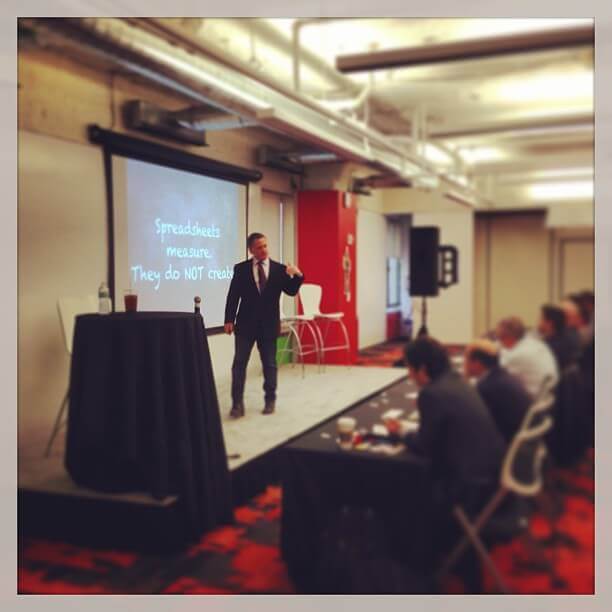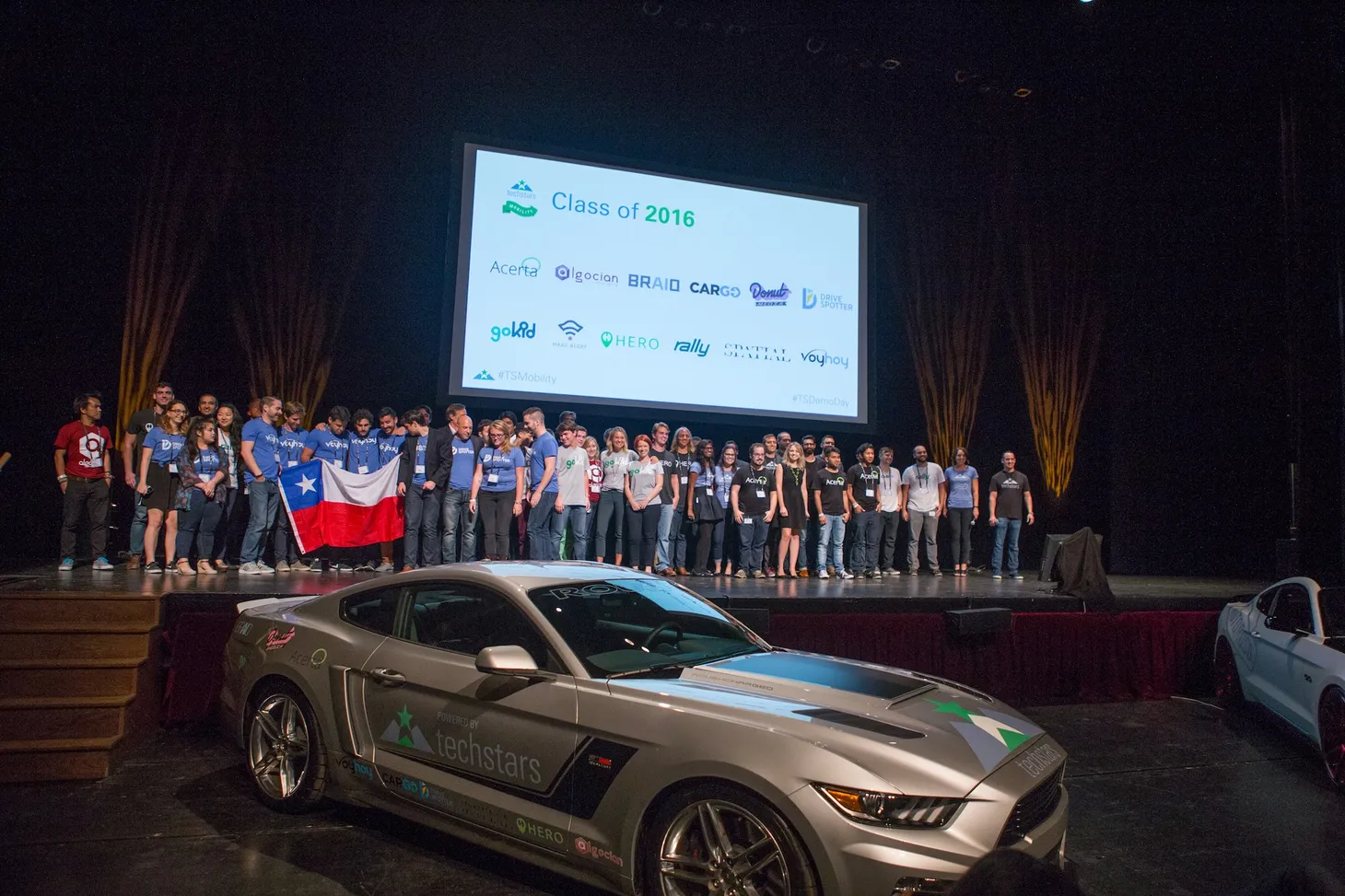24 Business Insights I’ve Learned from Billionaire Dan Gilbert
I moved to Detroit a little more than 2 years ago, joining Detroit Venture Partners (DVP). While here, I’ve had the pleasure to work alongside billionaire Dan Gilbert, #118 on the Forbes 400, whose a General Partner in our fund.
I moved to Detroit a little more than 2 years ago, joining Detroit Venture Partners (DVP). While here, I’ve had the pleasure to work alongside billionaire Dan Gilbert, #118 on the Forbes 400, whose a General Partner in our fund.
Unbeknownst to me in working alongside Dan, was the profound nuggets of business wisdom I’d gather. Below are 24 of my favorite insights I’ve learned since I’ve been at DVP.
1. Spreadsheets measure, they don’t create
Dan was speaking at the Detroit Venture Partners’ 2nd annual Leadership Summit when he remarked:
“But just because you can’t measure it, does that mean it has no value? Not by a long shot. It’s important to understand this truth. Because in a world of ‘spreadsheets’, one can easily forget that the MOST valuable things cannot be measured…”Dan Gilbert

2. Always CC 3x as many people as you should on new ideas
Keyword is new ideas. When sharing new ideas, the more people you share with, the more likely that idea can come to life. Knowledge is power. Don’t create silos at your company.
3. If you’re going to think, think big.
This is excellent advice. It’s also the same advice George Zachary told me a couple years back.
4. There is no such thing as a good deal with a bad guy
Super apropos in early stage investing. The investment might look good on paper, but what does the long term result look like?
5. GUMP it down

When explaining something high level, always gump it down. Don’t assume everyone will understand.
“If you can’t explain it to a six year old, you don’t understand it yourself.”Albert Einstein
6. How good of a deal is this?
I was working on a cap table for a new investment of ours and was walking Dan through it to get sign off (he’s on our investment committee). Dan remarked “Is this a good deal or not? I don’t care about valuation, I care about how much of the company I’m going to own relative to others.”
It made me think. A lower valuation doesn’t necessarily mean a better deal. You need to zoom out and look holistically at the deal. (ps: turns out this one was in fact a great deal)
7. Starting up is messy
Have you ever seen a clean and organized construction site? Why should starting your company or initiative, be any different?
8. You can only make money by being right about something that most people think is wrong
Fred Wilson wrote a great blog post on return and ridicule being highly correlated. He’s spot on. Dan is doing the same exact thing in Detroit, investing billions, while 60 Minutes posts a video about the ruins in Detroit, completely missing the massive opportunity ahead.
.@fredwilson “you can only make money by being right about something that most people think is wrong” truth— Greg Rosen (@grosen) April 25, 2013
9. How much does it cost you to make $1?
At first, this wasn’t an obvious question to me. But it’s ingenious.
Simple example: Let’s say it costs you $50 to acquire a user that signs up for a $30/month plan and sticks around for 12 months. It also costs you $15 to host this user’s data for a year and $100 for 5 hours of support. For simplicity, let’s assume the product does not change so there is no incremental costs on tech/design and there is no overhead.
Total revenue: $360 = $30 * 12
Total costs: $165 = $50 + $100 + $15
Cost per $1/revenue: $0.46 = $165/$360
If that is the case, you should do that all day long, spending millions to make hundreds of millions.
But the cost there is probably much higher in a real example. Factor in overhead (rent, equipment, etc.), salaries, and other expenses and it might be much higher.
In fact, it might cost you more than $1 to make a $1.
If that’s the case, then this a really expensive business to be in unless you figure out your leverage points (next insight) quickly.
Key advice for a startup: I’d love to see this in your deck.
10. Focus on the leverage points in your business
What are the tipping points in your business? What kind of effort produces the greatest results? Focus on those, ignore the rest.
“Give me a lever long enough and a place to stand, and I could lift the world.”Archimedes
11. Do the “Dan math”
Another favorite of mine. We were reviewing a cap table with Dan and he busts out a big and simple calculator. He found an error in our cap table–the numbers added up correctly, but back-of-the-napkin math showed a different result.
Taught me an invaluable lesson on how taking a simplistic approach can uncover inconsistencies in a complex approach.

12. Be prepared
At our Detroit Venture Partners 2nd Annual Leadership Summit, I was standing off to the side during one session, when the microphones stopped working for audience Q&A.
The a/v team was working on it, while I stood by.
Then Dan texted me “go do something, fix this”.
Embarrassed, I went over to the a/v team, where they had someone out to get some fresh batteries. I was the event producer, so it was my responsibility to be prepared and we didn’t test the microphones.
Since that moment of oops, I’ve always had extra mics and batteries on hand.
Also, being an Eagle Scout, this incidence shed new light on the Scout’s motto: be prepared. Lesson learned!

13. There is no Plan B; Plan B would distract from Plan A
If you’re always planning for the alternative, you’re not planning for your ideal outcome. Make it a reality.
14. Don’t do $10/hr work
This was an enlightening moment when I heard this one. Don’t do the $10/hr work, pay someone to do that, so you can focus on the $100+/hour work.
So very true.
It’s also the basis for Tim Ferriss’ book the 4 Hour Workweek.
15. Focus on making dollars, not saving cents
Are you focusing on cutting costs or driving more revenue? If you increase the top line, you’ll take care of your bottom line.
16. Give before you get
Many startup folks have written about this including Brad Feldand Mark Suster.
It’s a personal core belief of mine and what fueled my open source development work for nearly a decade.
It’s also great to see that same philosophy resonants deeply within a billionaire too.
17. Always raise your level of awareness
A Quicken Loans ISM raised my awareness about being aware.
Sounds silly, but it’s amazing the things you’ll see when you’re really present and aware of your surroundings.

18. Define your company’s culture
Clarify your culture from the start.
The two of you. Who are we? Define your culture.
Grow it to 1000 people.
Your first day of big trouble is if you don’t.
People make decisions when you are not there.
That’s how you scale. You only have 24 hours in a day.
19. Build a better mousetrap
Dan was giving a talk when someone in the audience asked him, “If you were to start over again, what would you do from the start?”
“Hire a process improvement person. You’ll get 5-100x return. Have them talk to front line people and improve your processes. At Quicken Loans, we have over 230 dedicated people to improve our processes. We’ve seen more growth in last 3 years than previous 25. We had 0 in 2004.”
“Build a better mousetrap and the world will beat a path to your door.”Ralph Waldo Emerson
20. Ignore the noise
Another Quicken Loans ISM, and apropos to startups, ignore the noise is about cutting through the noise to drive results. Whether criticism, excuses, or simply bad luck, ignore the noise so you can focus on winning.
Bonus points for the startups that ignore the noise from Techcrunch buzz, the startup party scene, and actually focus on building a business that creates value.
21. Pull the threads
There are over 100 companies in the Quicken Loans family. This week I’ll be in Cincinnati for the 5th annual family reunion that brings over 300 executives across these companies together. The purpose: to pull the threads, focusing on ways to find common ties (or threads) between companies, to improve business outcomes. You can follow the event on Twitter here.
22. Balance the hardware with software
Another interesting insight is Dan’s approach to rebuilding Detroit. You need to balance what buildings you own (e.g., the hardware), with what companies lease them (e.g., the software), along with properly connecting building to building via placemaking (e.g., more software), to create a truly vibrant area.
It’s thinking holistically in a approach to create harmony.
1 + 1 = 3
The sum is greater than the parts
23. Innovation is rewarded, execution is worshiped
Another Quicken Loans ISM and one of my favorites, it’s not just about a great idea, it’s about the great implementation of that idea. So get out there and start doing!
24. The 27 Things that Dan Gilbert has learned in 27 years
And finally, straight from the source, 27 things Dan’s learned in 27 years. More great nuggets of wisdom.
Do you have a favorite insight? Or is there an insight you’d like me to dive deeper in a future post? Let me know by leaving a comment below.
Ted Serbinski Newsletter
Join the newsletter to receive the latest updates in your inbox.


